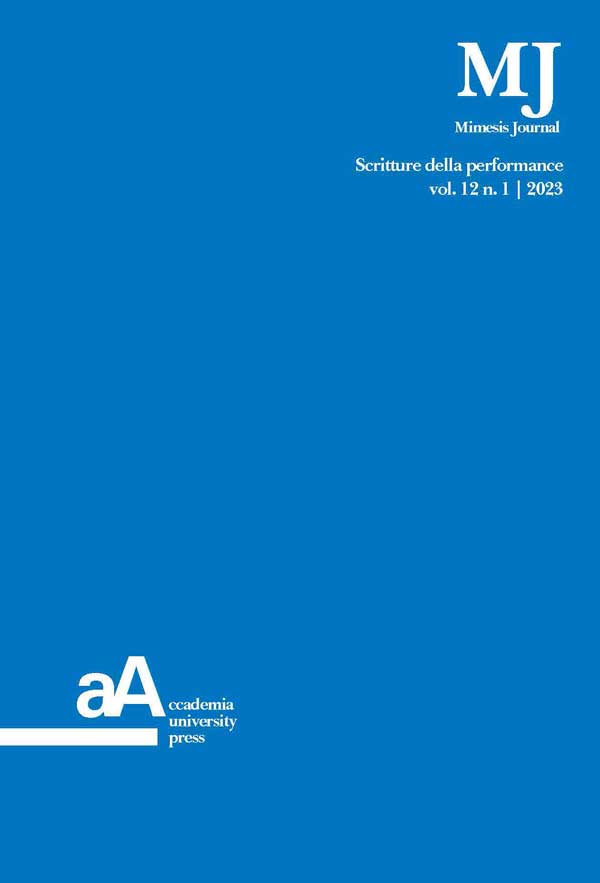«The play is full of echoes»
La vocazione registica di Samuel Beckett
DOI:
https://doi.org/10.4000/mimesis.2741Abstract
L’attività di Samuel Beckett quale allestitore dei propri play ha ricevuto attenzione critica piuttosto tardi all’interno del settore composito degli studi beckettiani: se le prime messinscene firmate dall’autore risalgono alla seconda metà degli anni Sessanta, i contributi che le esaminano – escludendo le testimonianze dirette dei suoi assistenti, comparse a margine degli spettacoli stessi – non sono anteriori al decennio Ottanta. In generale, l’esperienza di uomo di teatro tende a essere considerata secondaria – quando non trascurabile – nell’itinerario artistico di Beckett, oscurata com’è dalla sua straordinariamente innovativa produzione drammatica. Un dato sembra tuttavia sfuggire, e cioè che, col procedere del suo iter creativo, pratica di scrittura e pratica di scena si avviano a diventare dimensioni sempre più interrelate, fino a giungere al momento in cui l’autore decide di prendere ufficialmente possesso della molteplicità di strumenti offerti dal palcoscenico e di attribuirsi il ruolo di regista di sé stesso. Attraverso lo scandaglio dei theatrical notebooks e dei revised texts, il contributo si propone di riflettere sui dispositivi progettuali messi a punto da Beckett nella fase di allestimento delle proprie opere teatrali. L’analisi di due produzioni firmate per lo Schiller Theater di Berlino – l’Endspiel del ’67 e il Warten auf Godot del ’75 – consentirà di rilevare le caratteristiche peculiari della pratica registica beckettiana, rigorosamente incentrata su una texture di figurazioni ritmiche che interconnettono gesto e movimento, spazio scenico e materia verbale.


